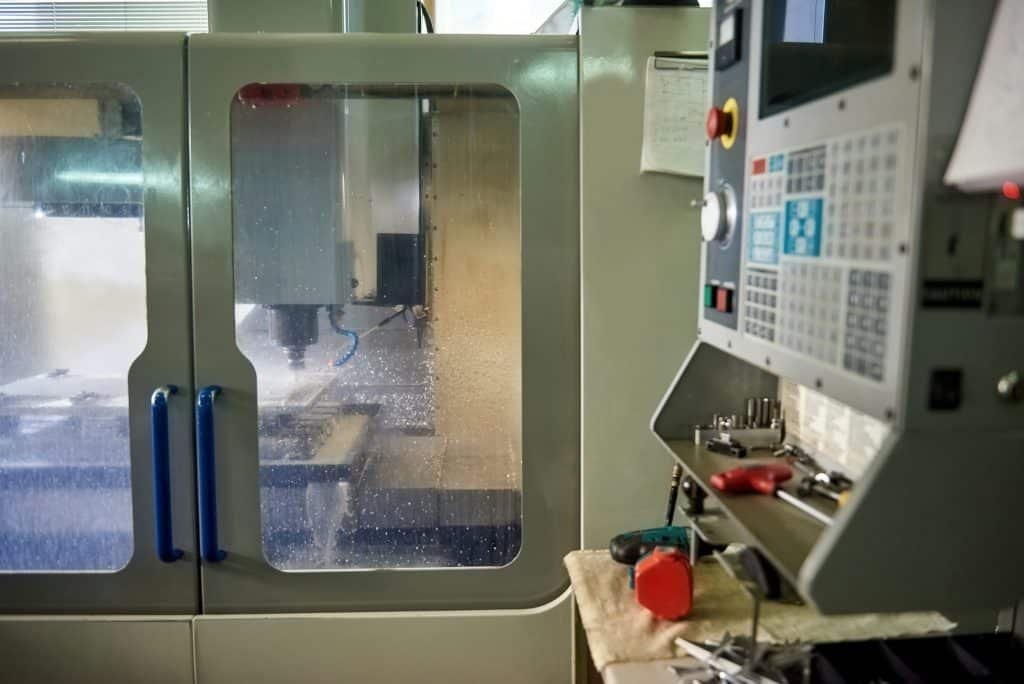Here’s how to effectively train and orient your new helper, along with resources and training programs available to support this process.In the long run, Singapore house maid agency The value will be higher and higher, and there will be a great leap in essence. https://1achieve.net
ESSENTIAL KNOWLEDGE
Bryan
8/6/20248 min read
How to Effectively Train and Orient a New Helper
1. Initial Introduction
Start with a Warm Welcome
When your new domestic helper arrives, it¨s crucial to start on the right foot by making her feel welcomed and valued. A warm welcome helps to create a positive first impression and sets the tone for a respectful and cooperative working relationship. Introduce her to each family member, including children and pets, to help her feel part of the household. This is an opportunity to share any relevant details about family members, such as allergies, preferences, or routines, which will help her understand her role better.
Tour the House
A thorough tour of the house is essential for helping your new helper familiarize herself with her new environment. Show her key areas such as the kitchen, laundry room, living areas, and bathrooms, explaining the specific tasks expected in each location. Ensure she understands the layout, including where to find cleaning supplies, tools, and other necessary items. Highlight areas that require special attention, such as delicate surfaces, valuable items, or spaces with specific cleaning protocols.
2. Clear Communication
Set Clear Expectations
One of the most critical aspects of training a new domestic helper is setting clear expectations. Provide her with a written list of her duties, working hours, and household rules. Be specific about the standards you expect, such as how you like the laundry done, how meals should be prepared, and any specific cleaning routines. Clear communication reduces misunderstandings and ensures that she knows exactly what is required of her.
Cultural Sensitivity
Domestic helpers often come from different cultural backgrounds, and it¨s essential to be sensitive to these differences. Take time to explain any cultural practices or dietary restrictions your family follows. Understanding her cultural background can also help you communicate more effectively and build a stronger working relationship. Encourage her to share her customs and traditions, as this can enrich your household¨s cultural experience.
3. Hands-On Training
Demonstrate Tasks
Effective training involves more than just verbal instructions; it requires hands-on demonstrations. Show her how to perform specific tasks, such as using household appliances, cooking particular dishes, or cleaning specific areas. Demonstrations provide a visual guide and help her understand the standards you expect. Be patient and take the time to explain each step thoroughly.
Step-by-Step Guidance
For more complex tasks, break them down into smaller, manageable steps. This approach makes it easier for her to learn and reduces the likelihood of mistakes. Allow her to practice each step while you supervise and provide constructive feedback. Gradually, she will become more confident and proficient in her duties.
4. Establish Routine and Schedule
Create a Routine
Establishing a daily and weekly routine helps your helper manage her time effectively and ensures that all tasks are completed consistently. A clear schedule provides structure and helps prioritize tasks. Include regular tasks such as cleaning, cooking, and laundry, as well as periodic tasks like deep cleaning or special projects.
Regular Check-Ins
Schedule regular check-ins to discuss her progress, address any concerns, and provide feedback. These meetings are an opportunity to recognize her hard work, suggest improvements, and ensure she feels supported. Regular communication fosters a positive working relationship and helps address any issues before they become significant problems.
5. Safety and Emergency Procedures
Safety Training
Safety should be a top priority in any household. Ensure your helper is familiar with household safety procedures, such as how to use fire extinguishers, first aid kits, and emergency exits. Explain the importance of safe practices when handling cleaning chemicals, operating appliances, and performing tasks that involve potential hazards.
Emergency Contacts
Provide your helper with a list of emergency contacts, including family members, neighbors, and local emergency services. Make sure she knows how to contact these individuals in case of an emergency. It¨s also a good idea to have a clear plan in place for different types of emergencies, such as fires, medical incidents, or natural disasters.
6. Encourage Learning and Development
Skill Development
Encourage your helper to improve her skills through continuous learning. Support her in taking up additional training programs if she is interested. This could include language classes, cooking courses, or other professional development opportunities. Investing in her growth benefits both her and your household by enhancing her abilities and boosting her confidence.
Resources and Training Programs Available
1. Government and Non-Profit Organizations
Ministry of Manpower (MOM) Singapore
The Ministry of Manpower (MOM) in Singapore provides various resources to support employers and domestic helpers. Their website offers comprehensive information on employment laws, best practices, and guidelines for managing domestic helpers. MOM¨s resources help ensure that employers understand their responsibilities and that domestic helpers are treated fairly.
Foreign Domestic Worker Association for Social Support and Training (FAST)
The Foreign Domestic Worker Association for Social Support and Training (FAST) offers a wide range of training programs and support services for domestic helpers. Their courses cover essential skills such as housekeeping, cooking, eldercare, and childcare. FAST also provides counseling and social support services to help domestic helpers adjust to their new environment and cope with any challenges they may face.
2. Training Centers
Aidha
Aidha is a non-profit organization that provides financial literacy and management courses for domestic helpers. Their programs focus on helping domestic helpers build financial independence through budgeting, savings, and entrepreneurship training. Aidha¨s courses empower domestic helpers to manage their finances effectively and plan for their future.
Home Academy
Home Academy offers practical training courses designed to enhance the competency and confidence of domestic helpers. Their courses cover a range of skills, including cooking, cleaning, childcare, and elderly care. Home Academy¨s training programs are tailored to meet the specific needs of domestic helpers and help them perform their duties to a high standard.
3. Online Resources
YouTube and Educational Websites
Online platforms such as YouTube offer a wealth of instructional videos on various household tasks and skills. These videos provide visual demonstrations and step-by-step instructions, making it easy for domestic helpers to learn new skills. Educational websites also offer articles and guides on topics such as cleaning techniques, cooking recipes, and household management.
E-Learning Platforms
E-learning platforms like Coursera and Udemy offer courses on a wide range of topics that can benefit domestic helpers. These courses cover areas such as language skills, cooking, cleaning, childcare, and personal development. E-learning platforms provide flexible learning options, allowing domestic helpers to study at their own pace and according to their schedules.
Detailed Steps for Effective Training and Orientation
Building a Positive Relationship
Mutual Respect and Trust
Building a positive relationship with your domestic helper is the foundation of effective training and orientation. Mutual respect and trust are essential for a harmonious working relationship. Treat her with dignity and respect, and show appreciation for her hard work. Trust takes time to develop, so be patient and supportive as she settles into her new role.
Open Communication
Maintain open lines of communication to address any concerns or issues promptly. Encourage her to share her thoughts, ask questions, and provide feedback. Open communication helps prevent misunderstandings and ensures that both parties are on the same page.
Comprehensive Training Plan
Customized Training Program
Develop a customized training program based on your household¨s specific needs and your helper¨s experience and skills. A personalized training plan ensures that she receives the guidance and support needed to perform her duties effectively. Consider her strengths and areas for improvement when designing the program.
Progressive Learning Approach
Adopt a progressive learning approach that gradually increases the complexity of tasks. Start with basic tasks and gradually introduce more challenging responsibilities. This approach helps build her confidence and competence over time.
Task-Specific Training
Cleaning and Housekeeping
Provide detailed training on cleaning and housekeeping tasks, including:
- Daily Cleaning: Dusting, vacuuming, mopping, and tidying up common areas.
- Bathroom Cleaning: Sanitizing surfaces, cleaning toilets, and maintaining hygiene.
- Kitchen Cleaning: Cleaning appliances, countertops, and dishes, and ensuring food safety.
- Laundry: Washing, drying, ironing, and folding clothes.
Cooking and Meal Preparation
Teach her how to prepare meals according to your family¨s preferences and dietary requirements. This includes:
- Basic Cooking Techniques: Boiling, frying, baking, and steaming.
- Meal Planning: Planning and preparing balanced meals.
- Special Dietary Needs: Accommodating allergies, vegetarian diets, or cultural preferences.
Childcare and Eldercare
If her duties include childcare or eldercare, provide specific training on:
- Childcare: Bathing, feeding, supervising playtime, and helping with homework.
- Eldercare: Assisting with mobility, administering medication, and providing companionship.
Monitoring and Feedback
Performance Evaluation
Regularly evaluate her performance to ensure she is meeting your expectations. Use a checklist to track her progress and identify areas for improvement. Provide constructive feedback and recognize her achievements.
Continuous Improvement
Encourage a culture of continuous improvement by offering additional training opportunities and resources. Support her in developing new skills and taking on more responsibilities. Continuous improvement benefits both your helper and your household.
Addressing Challenges and Solutions
Overcoming Language Barriers
Language Training
If there are language barriers, consider enrolling your helper in language classes to improve communication. Many training centers and online platforms offer language courses tailored for domestic helpers.
Visual Aids and Demonstrations
Use visual aids, demonstrations, and hands-on training to overcome language barriers. Visual instructions are often more effective than verbal explanations, especially for complex tasks.
Managing Cultural Differences
Cultural Sensitivity Training
Provide cultural sensitivity training to help your helper understand and respect your family¨s customs and traditions. This training can include information on cultural norm, religious practices, and social etiquette.
Open Dialogue
Encourage open dialogue about cultural differences and be willing to learn about her customs and traditions. This mutual exchange of cultural knowledge can enrich your household and foster mutual respect.
Building a Supportive Environment
Emotional Support
Recognize that adjusting to a new environment can be challenging for your helper. Provide emotional support by being empathetic, understanding, and approachable. Encourage her to share any concerns or difficulties she may be experiencing.
Social Integration
Help her integrate into the local community by introducing her to support networks and social groups for domestic helpers. Social integration can reduce feelings of isolation and provide her with a support system.
Legal and Ethical Considerations
Employment Contract
Clear Terms and Conditions
Ensure that the employment contract includes clear terms and conditions, outlining her duties, working hours, salary, and benefits. A well-defined contract helps prevent misunderstandings and disputes.
Compliance with Laws
Ensure that the employment contract complies with local labor laws and regulations. Familiarize yourself with the legal requirements for employing a domestic helper in your country.
Fair Treatment and Compensation
Fair Wages
Pay your helper a fair wage that complies with local labor laws and reflects her skills and experience. Providing fair compensation shows respect for her work and helps build a positive working relationship.
Benefits and Welfare
Provide benefits such as health insurance, paid leave, and adequate rest days. Ensure her living conditions are comfortable and meet legal standards.
Ethical Employment Practices
Respect and Dignity
Treat your helper with respect and dignity, recognizing her as a valuable member of your household. Avoid any form of discrimination, harassment, or exploitation.
Support and Development
Invest in her personal and professional development by providing training opportunities and supporting her growth. Encouraging her to pursue her goals and aspirations benefits both her and your household.
Conclusion
Training and orienting a new domestic helper is a comprehensive process that requires patience, clear communication, and continuous support. By providing a warm welcome, clear expectations, hands-on training, and regular feedback, you can help your helper adapt quickly and perform her duties effectively. Utilizing available resources and training programs can further enhance her skills and confidence, ultimately benefiting your entire household. Building a positive working relationship based on mutual respect and trust ensures a harmonious and productive environment for both your helper and your family. Investing time in proper training and orientation leads to a more productive and positive working relationship, ensuring a successful and fulfilling experience for everyone involved.




